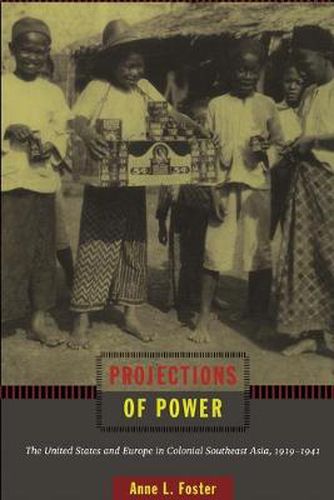Readings Newsletter
Become a Readings Member to make your shopping experience even easier.
Sign in or sign up for free!
You’re not far away from qualifying for FREE standard shipping within Australia
You’ve qualified for FREE standard shipping within Australia
The cart is loading…






Throughout its history, the United States has been both imperialistic and anticolonial: imperialistic in its expansion across the continent and across oceans to colonies such as the Philippines, and anticolonial in its rhetoric and ideology. How did this contradiction shape its interactions with European colonists and Southeast Asians after the United States joined the ranks of colonial powers in 1898? Anne L. Foster argues that the actions of the United States functioned primarily to uphold, and even strengthen, the colonial order in Southeast Asia. The United States participated in international agreements to track and suppress the region’s communists and radical nationalists, and in economic agreements benefiting the colonial powers. Yet the American presence did not always serve colonial ends; American cultural products (including movies and consumer goods) and its economic practices (such as encouraging indigenous entrepreneurship) were appropriated by Southeast Asians for their own purposes. Scholars have rarely explored the interactions among the European colonies of Southeast Asia in the early twentieth century. Foster is the first to incorporate the United States into such an analysis. As she demonstrates, the presence of the United States as a colonial power in Southeast Asia after the First World War helps to explain the resiliency of colonialism in the region. It also highlights the inexorable and appealing changes that Southeast Asians perceived as possibilities for the region’s future.
$9.00 standard shipping within Australia
FREE standard shipping within Australia for orders over $100.00
Express & International shipping calculated at checkout
Throughout its history, the United States has been both imperialistic and anticolonial: imperialistic in its expansion across the continent and across oceans to colonies such as the Philippines, and anticolonial in its rhetoric and ideology. How did this contradiction shape its interactions with European colonists and Southeast Asians after the United States joined the ranks of colonial powers in 1898? Anne L. Foster argues that the actions of the United States functioned primarily to uphold, and even strengthen, the colonial order in Southeast Asia. The United States participated in international agreements to track and suppress the region’s communists and radical nationalists, and in economic agreements benefiting the colonial powers. Yet the American presence did not always serve colonial ends; American cultural products (including movies and consumer goods) and its economic practices (such as encouraging indigenous entrepreneurship) were appropriated by Southeast Asians for their own purposes. Scholars have rarely explored the interactions among the European colonies of Southeast Asia in the early twentieth century. Foster is the first to incorporate the United States into such an analysis. As she demonstrates, the presence of the United States as a colonial power in Southeast Asia after the First World War helps to explain the resiliency of colonialism in the region. It also highlights the inexorable and appealing changes that Southeast Asians perceived as possibilities for the region’s future.